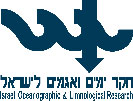 Daniel Pauly
Daniel Pauly
Professor, Fisheries Centre & Zoology; Principal Investigator, Sea Around Us, the University of British Colombia
Dr. Daniel Pauly is a binational French and Canadian citizen who completed his high school and university studies in Germany. After many years at the International Center for Living Aquatic Resources Management (ICLARM), in Manila, Philippines, Daniel Pauly became in 1994 a Professor at the Fisheries Centre of the University of British Columbia, of which he was the Director from 2003 to 2003. Since 1999, he is also Principal Investigator of the Sea Around Us project, funded by the Pew Charitable Trusts, and devoted to studying documenting and mitigating the impact of fisheries on the world’s marine ecosystems.
The concepts, methods and software he (co-)developed, documented in over 500 publications, are used throughout the world, following multiple courses and workshops given in four languages on all five continents. This applies especially the Ecopath modeling approach and software and FishBase, the online encyclopedia of fishes. This, work is recognized in various profiles, notably in Science, Nature and the New York Times, and by numerous awards, notably the International Cosmos Prize, Japan (2005), the Volvo Environmental Prize, Sweden (2006), the Ramon Margalef Prize from the Government of Catalonia (Spain, 2008) and the Peter Benchley Award (USA, 2015).
 Michail O. Angelidis,
Michail O. Angelidis,
Professor, Division of IAEA Environment Laboratories, Department of Nuclear Sciences and Applications, International Atomic Energy Agency
Professor Michael O. Angelidis is Section Head of the Marine Environmental Studies Laboratory (MESL) of the International Atomic Energy Agency/Environment Laboratories, in Monaco. MESL is specialised in the analysis of trace elements, organic contaminants and long-lived radionuclides in marine samples and applies stable isotope methods to study marine pollution processes. Before joining IAEA in 2012, Prof Angelidis was for 5 years Programme Officer of UNEP/Mediterranean Action Plan – MED POL, responsible for the coordination of national marine pollution monitoring programmes in the Mediterranean region and the management of regional monitoring data. He coordinated the drafting of assessments on the pollution state and trends in the Mediterranean and participated in the development of the UNEP/MAP integrated monitoring programme in the framework of an Ecosystem Approach for the management of human activities in the Mediterranean. Mr. Angelidis is Professor of Environmental Chemistry in the Department of Environment of the University of the Aegean, Greece, since 1991 and his main research activity is on the biogeochemical cycles of anthropogenic trace elements in the marine environment. He has published more than 130 papers and articles in scientific journals and Conference Proceedings. He has also worked as an international consultant on marine pollution issues for UNEP, UNDP, FAO, WHO, and the European Commission, and has conducted more than 50 Environmental Impact Assessments studies for public authorities and private investors.
 Nicholas S. Fisher
Nicholas S. Fisher
Distinguished Professor & Director, Consortium for Inter-Disciplinary Environmental Research, Stony Brook University
Nicholas Fisher is a marine biogeochemist who is known primarily for his studies on the interactions of contaminants with marine organisms, particularly the cycling and bioaccumulation of metals, metalloids, and long-lived radionuclides in marine ecosystems. These studies have considered contaminant fluxes in the oceans, the trophic transfer of metals in marine food webs, and public health implications of seafood contamination. Fisher has a BA in Biology from Brandeis University (1970) and a PhD in Biology from the State University of New York at Stony Brook (1974). He was a postdoctoral investigator in the Chemistry Department of the Woods Hole Oceanographic Institution from 1974 to 1977, and then worked as Senior Research Scientist for the Ministry for Conservation in Melbourne Australia from 1977 to 1980. Dr. Fisher then became Research Scientist at the IAEA Laboratory of Marine Radioactivity in Monaco (until 1985), worked as Oceanographer for the Brookhaven National Laboratory in 1986-1987, and moved to Stony Brook University in 1988, where is now Distinguished Professor of Marine Sciences and also Founder and Director of the Consortium for Interdisciplinary Environmental Research at Stony Brook.
 Charles T. Driscoll
Charles T. Driscoll
NAE Distinguished Professor and University Professor of Environmental Systems, Engineering Department of Civil and Environmental Engineering, Syracuse University
Charles T. Driscoll is a Distinguished Professor at Syracuse University. He received his PhD from Cornell. Driscoll’s research addresses the effects of disturbance on forest, freshwater and marine ecosystems, including air pollution (acid and mercury deposition), industrial and municipal waste, land-use, and climate change. Driscoll has testified at US Congressional and state legislative committee hearings, and served on many local, national and international committees. He is a member of the US National Academy of Engineering.
 Tamara S. Galloway
Tamara S. Galloway
Professor of Ecotoxicology, School of Biosciences, University of Exeter
Tamara is Professor of Ecotoxicology at the University of Exeter and also holds an honorary Chair at University of Exeter Medical School.
Tamara’s research focus is in understanding how organisms adapt and survive in polluted environments and she studies the health effects of some of the most pressing priority and emerging pollutants: including complex organics, plastics additives, metals and nanoparticles. She receives funding from a wide range of research councils, medical charities and industry groups both in the UK and internationally. She is an expert member of several (inter)/national committees charged with environmental protection and the promotion of translational research.
 Stylianos Katsanevakis
Stylianos Katsanevakis
Associate Professor in Marine Ecology, University of the Aegean
Stylianos Katsanevakis is an Associate Professor in Marine Ecology in the University of the Aegean, Department of Marine Sciences. Before joining the University of the Aegean, Prof. Katsanevakis worked as a researcher in the European Commission’s Joint Research Centre (2011-2014), in the Hellenic Centre for Marine Research (2007-2011) and in the University of Athens (2001-2006). He is a marine ecologist with extensive field experience in the Mediterranean Sea. His research currently focuses on marine conservation, marine spatial planning, developing and applying methods for marine monitoring, alien invasions and their impacts on marine biodiversity and ecosystem services. He has participated as coordinator or principal researcher in several EU-funded or other international and national projects (e.g. AFRAME, MESMA, EASIN, SEACOAST, DEVOTES). He has been a member of various international working groups (e.g. ESF WG on MPAs, STECF WGs, MSFD GES Marine Litter Task Group). He has worked on the development of the European Alien Species Information Network (EASIN) for the support of the Biodiversity Strategy and the new Regulation on the management of invasive alien species. He is (co)author of >170 publications, of which 89 in peer-reviewed international journals (http://scholar.google.it/citations?user=PWAQG60AAAAJ&hl=en).
 Rodney E. Cluck
Rodney E. Cluck
Chief, Department of the Interior, Bureau of Ocean Energy Management, Chief, Division of Environmental Sciences, Environmental Studies Program
Dr. Rodney Cluck holds a Ph.D. in environmental sociology from Mississippi State University and a Masters Degree in Rural Sociology from the University of Arkansas, Fayetteville. For 6 years, beginning in 1999, Dr. Cluck served as the senior Bureau social scientist where he developed and oversaw scientific studies and conducted National Environmental Policy Act analysis. In 2005, Dr. Cluck joined the Office of Alternative Energy Programs and became the project manager for the United States’ first proposed offshore wind facility. Dr. Cluck is currently the Chief of the Division of Environmental Sciences where he leads the Environmental Studies Program, the scientific backbone that informs policy decisions regarding leasing and development of ocean energy.
 Dr. Shari A. Yvon-Lewis
Dr. Shari A. Yvon-Lewis
Professor Dept. of Oceanography Texas A&M University
I am currently a professor in the Department of Oceanography at Texas A&M University. I received my PhD from the Rosenstiel School of Marine and Atmospheric Science (RSMAS) at the University of Miami in 1994. My two primary areas of research involve understanding:
- The role of the ocean in regulating atmospherically important trace gases. A variety of trace gases including halocarbons (e.g. methyl halides, trihalomethanes), nitrous oxide, carbon dioxide, and methane are both produced and degraded in the ocean. The distribution and strength of the various oceanic sources and sinks impacts the exchange of these gases between the ocean and atmosphere. Through ship-board measurements, laboratory studies and modeling, my research group examines the role/magnitude of oceanic influence on trace gases that are important in the atmosphere as stratospheric ozone depletors or greenhouse gases.
- The impact of organic matter remineralization on dissolved inorganic carbon and pH. This relates to my trace gas research in that the oxidation of organic matter increases CO2, and to characterize the dissolved CO2 also requires understanding the dissolved inorganic carbon (DIC). In addition to measuring CO2 in the air and seawater, we also measure the DIC and total alkalinity (TA). This has allowed my research group to begin characterizing the DIC/pH system in the deep Gulf of Mexico. I have also been working with biologists on laboratory studies looking at the impacts of ocean acidification on various organisms and processes (e.g. toxin production).
 Brian Helmuth
Brian Helmuth
Professor, Department of Marine and Environmental Sciences, School of Public Policy and Urban Affairs, Northeastern University
Dr. Brian Helmuth is a Professor at the Marine Science Center at Northeastern University in Boston, Massachusetts, with a joint appointment in the Department of Marine and Environmental Sciences and the School of Public Policy and Urban Affairs. Helmuth’s research and teaching focus on predicting the likely ecological impacts of climate change on coastal ecosystems, and on the development of products that are scientifically accurate, understandable, and useful by a diverse array of stakeholders. He has authored or co-authored over 70 peer-reviewed journal articles in the areas of climate change and marine ecology.
Helmuth is a Fellow of the Aldo Leopold Leadership program, which trains select scientists to interact with policy makers, journalists and the public and in 2011 was named a Google Science Communication Fellow in the area of climate change. He also served as a lead author on the Technical input document for the inaugural Oceans chapter of the US National Climate Assessment.




